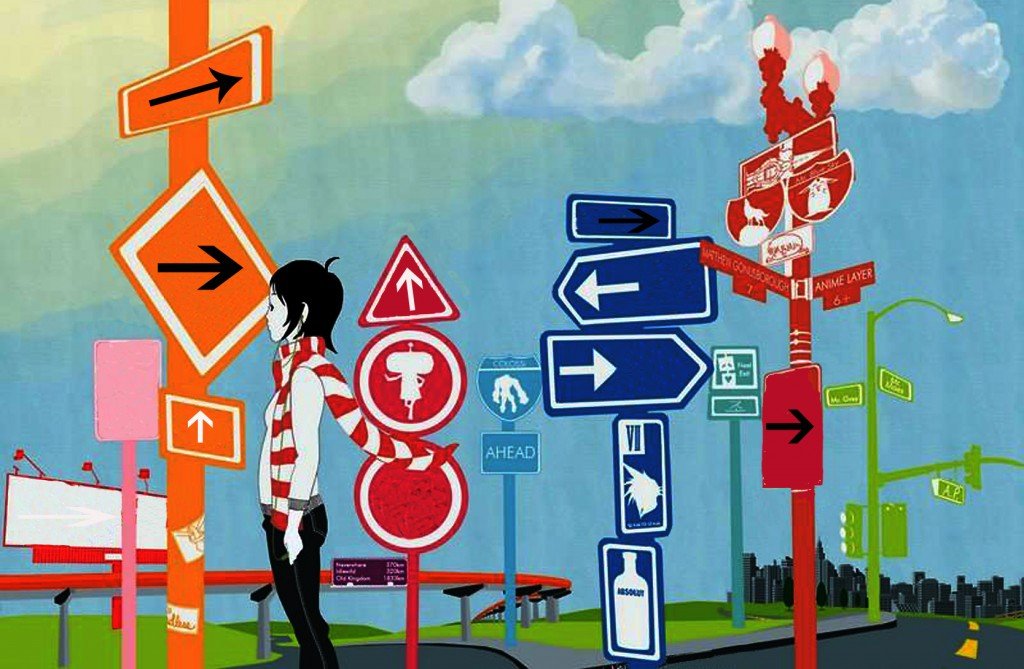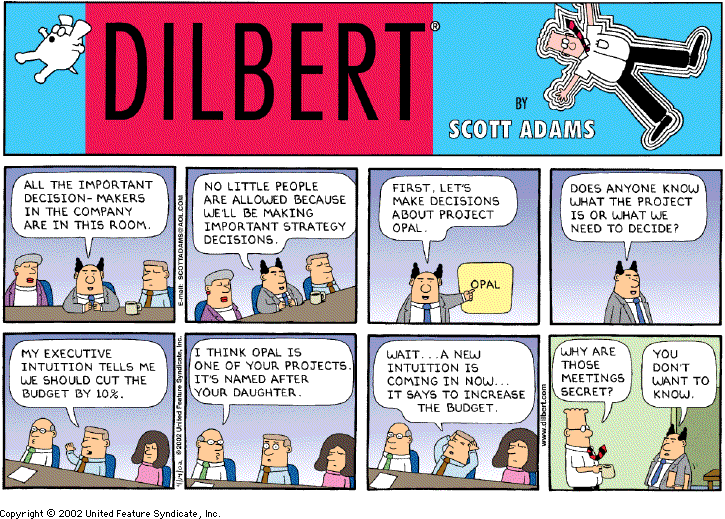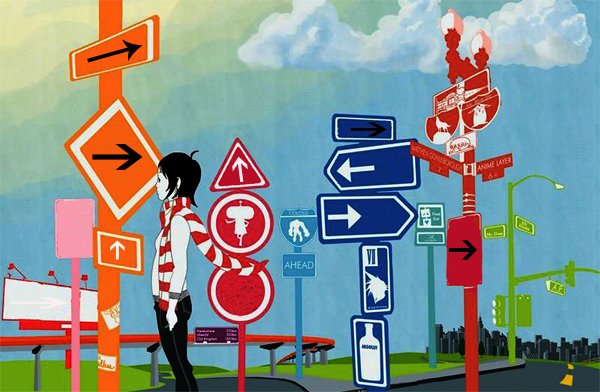
Much of the work of a leader involves making what one would call the right decision. To take that crucial step can feel particularly overwhelming, because of what involves: opting for one solution over all the other possibilities. Are we prepared to that big cost of being “wrong”? What about looking at this from a different point of view, by questioning what in reality is the right decision? Is it possible to figure out a different approach to decision-making that moves away from the binary dynamics of the wrong/right paradigm?
As Deepak Chopra says, a renewed author and physician: “If you obsess over whether you are making the right decision, you are basically assuming that the universe will reward you for one thing and punish you for another. The universe has no fixed agenda. Once you make any decision, it works around that decision. There is no right or wrong, only a series of possibilities that shift with each thought, feeling, and action that you experience.”
Scott McNealy approach to decision—making is alike. Likewise, the co-founder of Sun Microsystems once said in a lecture: It’s important to make good decisions. But I spend much less time and energy worrying about “making the right decision” and much more time and energy ensuring that any decision I make turns out right.
So, how to make choices? Looking deeply into the process of decision making, one should pay attention to the feelings involved in it. One of the most common ones, as everybody knows, is the sensation of anxiety and fear. That anxiety can be actually paralyzing, blocking you in circuits of thoughts, that obsessily try to identify the “best” option, while panicking at the possibility of that option being the “wrong” one. This happens because there is still a cultural tendency of emphasizing the moment of choice as the crucial one. This tendency makes us miss out, that it is actually impossible in a certain way to anticipate the whole scenario of whatever decision we take, in the rational and conscientious way we so much long for. But lets take a step behind here: What is the point of spoiling the end of the film? In reality, if selecting waht looks like the “best” possibility doesn’t warrant you that things will turn out well in the long run, making a less fine choice doesn’t necessarily means that what will follow will be unhappiness and a stream of problems. It is actually our attitude towards what will happen next, no matter the decision we take (and when I say next I mean the days, months, and years that follow) that ultimately determines whether a given decision was the “right” one. Another aspect of this dynamic is that our focus on making the “right” decision can be extremely confusing, because the options we’re choosing from are actually tremendously difficult to rank. How can we determine in advance what career path will be “best,” or what is the top option for our business, or whether we should accept a new deal or not? It is actually impossible, as there are far too many variables. Besides, by longing so much for an objective way to mathematically rank our options we might distancing ourselves from subjective factors : our intuition, our emotions, our gut. We become blocked, as our mind travels in circles obsessively waiting for a sign — something — to point the way. What inevitably occurs is that our sense of agency and ownership diminishes and we are left at the same point where we started.
The path to getting unstuck when facing a overwhelming decision is embedded in McNealy’s and Deepak Chopra comments, and it involves a fundamental new approach to our mindset:
Trust your intuition and focus on the processes of what will happen after your decision.
Trusting your intuition is consistent with the results achieved by a research taken by Stanford professor Baba Shiv, about the neuroscience of decision-making. In his investigation, Shiv notes that in the case of complex decisions, if rational analysis might help us get closer to a decision, it won’t result in a definitive choice because our options involve exchanging one set of appealing results for another. The intricacies of each scenario, filled with pros and cons, are extremely difficult to determine in advance. We might get caught in what he calls a “trade-off conflict”.
Shiv’s research discovered that there are two key elements that bring you the best outcome: First successful decisions are those in which the decision-maker remains committed to their choice. And second, emotions play a critical role in determining a successful outcome to a trade-off decision. Emotions roles in this context can be therefore described as “mental shortcuts that help us resolve trade-off conflicts and…happily commit to a decision.” His advice is therefore: “When you feel a trade-off conflict, it just suits you to focus on your gut.” To abandon the tendency of ranking options, and develop ways to become in touch with your gut-feeling, your intuition is therefore essential in the process of decision-making.
As Albert Einstein once said: “The intuitive mind is a sacred gift and the rational mind is a faithful servant. We have created a society that honors the servant and has forgotten the gift.” But what does it truly mean to “feel your gut” or “trust your intuition”? How can we awaken once again the “gift” Einstein is talking about?
 This might be simpler said than done and it might inspire fear as well. Should we just simply allow our emotions to choose for us? Who hasn´t made “emotional” decisions that has later came to regret? But by looking back in a different way, we might consider though, that maybe those decisions were not exactly the wrong ones, but precisely the ones we needed then to learn something valuable in that moment, even if that learning was a painful one that we only understand now, in distance. The key here is to observe the emotions, through separating yourself from them: and to see emotions involves training.
This might be simpler said than done and it might inspire fear as well. Should we just simply allow our emotions to choose for us? Who hasn´t made “emotional” decisions that has later came to regret? But by looking back in a different way, we might consider though, that maybe those decisions were not exactly the wrong ones, but precisely the ones we needed then to learn something valuable in that moment, even if that learning was a painful one that we only understand now, in distance. The key here is to observe the emotions, through separating yourself from them: and to see emotions involves training.
What is a fact is that current neuroscience research makes clear that emotions are actually the key element in decision-making. Emotions rule out the options most likely to lead to a negative outcome and focus on our attention on the options likely to lead to a positive one. Another interesting research is the one done by professor Roy Baumeister and others, that suggests that good decision-making is tied to our ability to anticipate future emotional states: “It is not what a person feels right now, but what he or she anticipates feeling as the result of a particular behavior that can be a powerful and effective guide to choosing well.”
So, besides being in touch with our intuition it is also necessary to preview what is actually implicated in any choice we take, so it might be a successful one. Imagine for example that you have the possibility of finishing a big business opportunity in Russia: What do you feel, when you see yourself going every month to Moscow? Do you sense the cold and marvel of walking in the streets of Moscow looking with enthusiasm to its buildings and monuments in the street? Do you anticipate yourself excitedly solving conflicts and finding solutions in intense meetings with your Russian partners?
To picture all this in your head, restores our sense of agency ( by placing us in a situation where we see us taking practical action) and reminds us that while randomness plays a role in every outcome, our locus of control resides in the processes through which we put in practice our decisions, more than the belief on the one-time crucial decision. Plus, I believe that randomness can be seen from a different prespective: What if we consider that the actual random situation that was put in front of us, is there because it is meant to teach us something?
As a conclusion, if you find yourself paralysed by a process of decision-making move on through the following steps:
- First pay close attention to the feelings and emotions that accompany the decision you’re facing: Picture yourself having to take a very important decision and observe what you feel: is your heart beating rapidly? There´s sweat in the palm of your hands? Do you feel a sensation of knot in your throat ? If so, just stay with those feelings, calmly observing them, until they go away
- Second acknowledge how motivated you are to work toward the success of any given optionby visualizing in anticipation the details of each situation.
- Finally, recognizing that no matter what option we choose, our efforts to support its success will be more important than the initial guesswork that led to our choice – Are you truly engaged in pursuing that effort consistently?
Finally never forget even though we can’t always make the right decision, we can make every decision right.
Read More:
what level of system and network configuration is required for cui?
how to get rid of snapchat ai a step by step guide?

Maria Fonseca is the Editor and Infographic Artist for IntelligentHQ. She is also a thought leader writing about social innovation, sharing economy, social business, and the commons. Aside her work for IntelligentHQ, Maria Fonseca is a visual artist and filmmaker that has exhibited widely in international events such as Manifesta 5, Sao Paulo Biennial, Photo Espana, Moderna Museet in Stockholm, Joshibi University and many others. She concluded her PhD on essayistic filmmaking , taken at University of Westminster in London and is preparing her post doc that will explore the links between creativity and the sharing economy.










